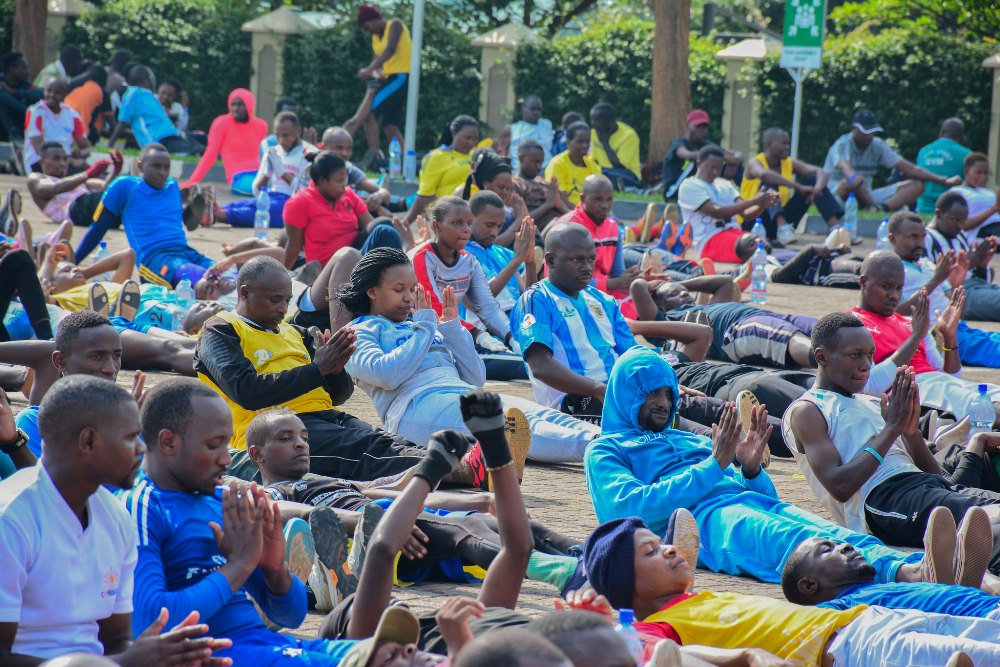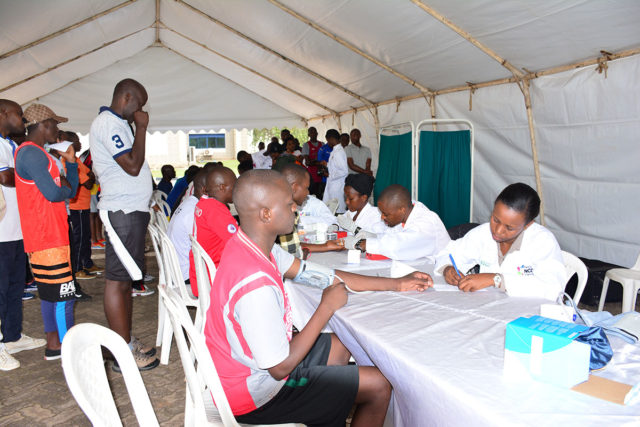
In Kigali We Believe in the Wellbeing of Our People
mai 21, 2019 — Programmes
A city’s future is not only judged by how its infrastructure is ready to serve the growing population but also how healthy the population is to continue or even increase production to grow its economy.
In Rwanda, and Kigali city in particular given our history of the Genocide against the Tutsi that took place in 1994 we value our people and their wellbeing comes on top among A city’s future is not only shaped by how its infrastructure is ready to serve the growing population but also by the health of its population and its ability to grow its economy.
In Rwanda and Kigali city in particular, given our history of the 1994 Genocide against the Tutsi , we value our people and their wellbeing comes on top among our priorities.
We believe that among the valuable resources that our country has, our people as among the first. With the youth making over 53% of our country’s population, the drive behind the establishment of the Kigali Car Free Day was about raising a healthy population for the present and the future.
The establishment of Kigali Car Free Day 2016 was an out of the box solution and a disruptive view of how to enhance urban healthy living. Aimed at preventing non-communicable diseases, it also provides an opportunity to hold mass sports activities without the risk of vehicular accidents, a venue for family gatherings outdoors and, of course, reduces transportation-related emissions on some days of the month.
Initially the Car Free Day was held once a month. Due to popular demand and guidance from different stakeholders it now takes place twice a month (the first and third Sunday of the month). Early this year we even expanded the Car Free Day activities from one site to four sites in different parts of the city.
However, in the initial stages not everybody welcomed the Car Free Day. Some people never imaged parking their cars and walking for even a few hours. The act of closing some roads to cars and in turn make them space for sports and other activities were new.
It didn’t take long for our city residents and visitors to embrace it. This was made possible through continuance mobilization and dialogue with our residents. We also worked very closely with different stakeholders-business community, public transporters and the civil society to buy in the activity. We worked closely with the police to reduce traffic disruptions by providing alternative routes for vehicles.
Presently over 20,000 persons take part in Car Free Day activities during a single edition. Thanks to our partners, different medical services are offered on site for free. These include medical checkups, eye and dental care and many more. On average every year over 7000 people access these services.

The Kigali Car Free Day wouldn’t have been successful without the support and guidance from the senior leadership of our country since its inception three years ago. The President of Rwanda H. E. Paul Kagame, the First Lady and Cabinet Ministers are regular participants in the Kigali Car Free Day. This has even encouraged more people to take part.
In the course of implementing the Car Free Day we have learnt valuable lessons. Urban centres shouldn’t shy away from implementing new, out of the box, and sometimes disruptive solutions. Our cities need new thinking but this can only be possible through consultation with the beneficiaries and different stakeholders. Another lesson is that if you are starting something new, start small and expand gradually. It is also important to keep the lines of feedback open. This has helped us to iron out some challenges the people were facing.
As we move forward, our plan is to even expand the Kigali Car Free Day to more parts of the city. We are also looking at making it a more fun and family oriented event to attract more participants. We are also planning to muster more support from the private sector and civil society inclined to support health living in our city.
References:
https://www.newtimes.co.rw/opinions/how-region-adopting-car-free-day
https://ktpress.rw/2018/10/car-free-day-kagame-shows-support-to-fitness-initiatives/